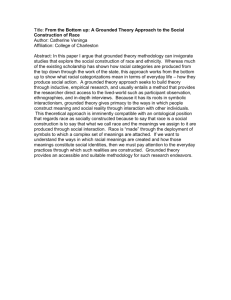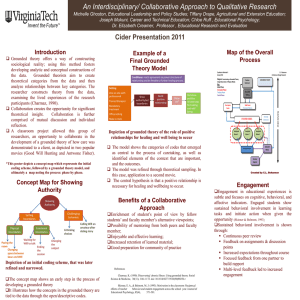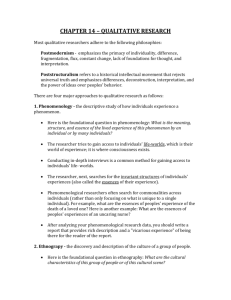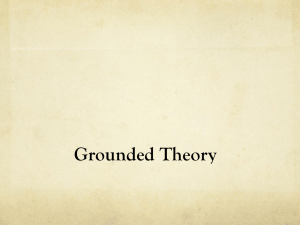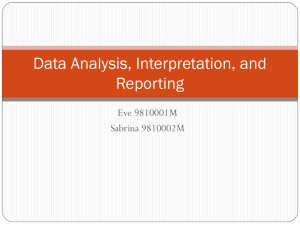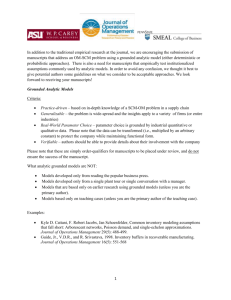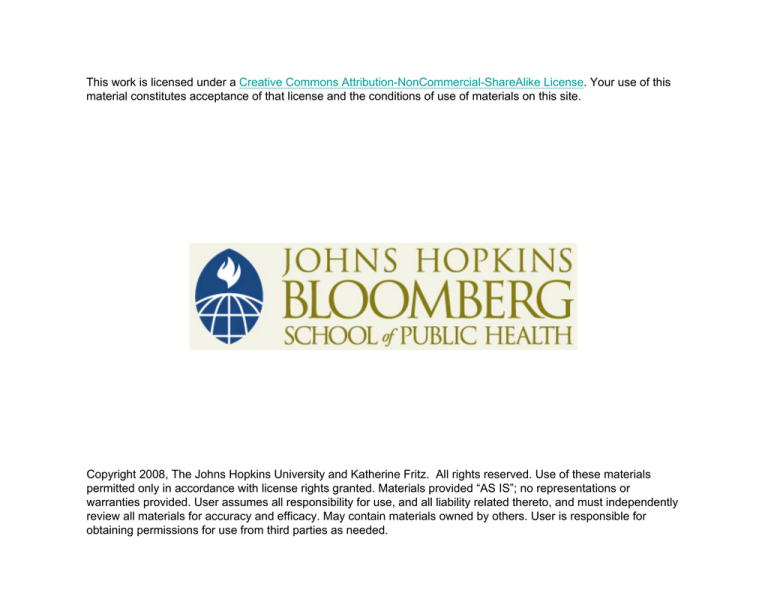
This work is licensed under a Creative Commons Attribution-NonCommercial-ShareAlike License. Your use of this
material constitutes acceptance of that license and the conditions of use of materials on this site.
Copyright 2008, The Johns Hopkins University and Katherine Fritz. All rights reserved. Use of these materials
permitted only in accordance with license rights granted. Materials provided “AS IS”; no representations or
warranties provided. User assumes all responsibility for use, and all liability related thereto, and must independently
review all materials for accuracy and efficacy. May contain materials owned by others. User is responsible for
obtaining permissions for use from third parties as needed.
Grounded Theory
Class Session 6
Qualitative Data Analysis
What are the Core Elements of
Grounded Theory?
•
Attempt to apply systematic and explicit data analysis technique to
textual information
– Why?
•
Unifying data collection with analysis
– How?
•
Data first, theory last
– What does this mean?
•
What are Strauss and Glaser fighting about anyway?
– Should I be concerned?
Data Collection
• What “grounded theory” principles guide
data collection according to Charmaz?
• What type of data is best for grounded
theory?
• What are emerging themes and what
should you do with them?
– How did you deal with them in your fieldwork?
• What questioning techniques can help
make meaning explicit?
– Why is this important?
Coding—Grounded Theory Style
• What purposes does coding have in
grounded theory?
• What is “line-by-line” coding or “open
coding”?
– How is it done and what does it achieve?
• What is “focused” coding?
– How does it push your analysis forward?
– What is the role of comparison at this stage?
Writing Memos
• What are memos?
– What purpose do they serve?
– When should you start writing them?
– What is the relationship between writing and
thinking?
• What is theoretical sampling?
– How is this related to constant comparison?
Providers’ perceptions of suicidal
behavior among young people
• What was the research question?
– Does grounded theory seem appropriate to answer it?
– What did you think of the introductory section in its
framing of the issues?
• What is a “contemporary” approach to grounded
theory?
• What did you think of the authors’ 7 stages?
• How compelling was the presentation of data
and conclusion?
– Did it pass the “so what?” test? How so or not so?
Mothers, Daughters and Sexual
Agency
• What was the research question?
• In what ways does grounded theory seem the best
fit?
– Why not a phenomenological approach, for example?
• What questions did they ask in order to elicit “thick”
descriptions suitable for grounded theory analysis?
• What coding strategy did the authors follow?
• How compelling was the presentation of themes and
conclusion?
– How did the authors incorporate theory and were you
satisfied with the result?
• What do you think are the advantages and
disadvantages of grounded theory?
– For example, what is the advantage or
disadvantage of articulating an explicit coding
procedure?
• How does it rate vis-à-vis other
approaches we have read about
• Might you use grounded theory for your
analysis? What inspires you?
• Through my fieldwork project I tried to gain
a better understanding of how people
perceive of organic foods. Given that there
is a notable increase in demand for
organic products, I hoped to learn what the
driving forces might be for these changes.
Furthermore, I wondered what people take
into consideration when purchasing or
advocating for organic food (Hannah
Arem).

